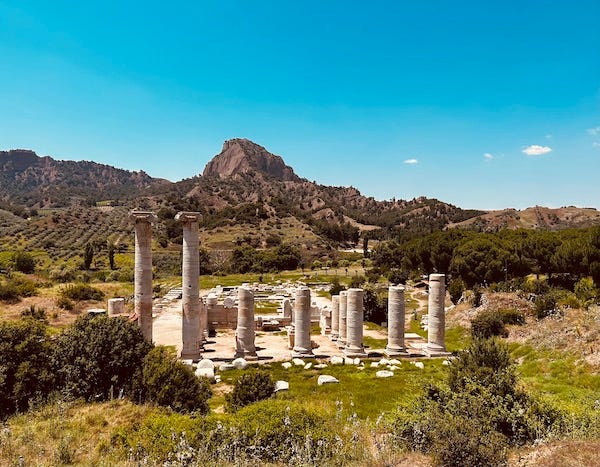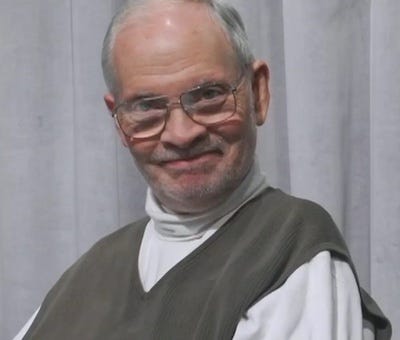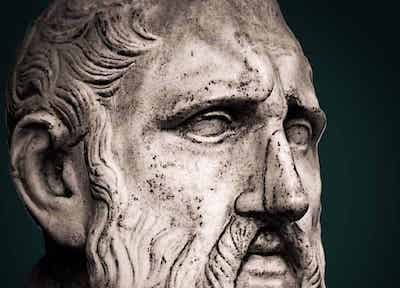The School for a New Stoicism
Introducing an initiative to develop and disseminate Stoicism for the modern era
It may not look like it from the volume of material produced by my writing, podcasting, and video producing. But I’m actually fairly new to Stoicism and Greco-Roman practical philosophy. In fact, it all started in the midst of my mid-life crisis, back in 2014.
I had been looking for a while for philosophical resources to help me overcome some of life’s setbacks, as well as to guide me through a change of profession (from biology to philosophy). I had already zeroed in on the Greco-Roman approach known as virtue ethics, when by chance I saw a tweet (as it was called then!) asking people to help celebrate Stoic Week. What the heck was Stoic Week? And why would anyone wish to celebrate the Stoics??
I signed up despite my misgivings and was immediately prompted to read the Discourses, by a guy I had never heard of despite having taken graduate level courses in ancient philosophy: Epictetus of Hierapolis. I was struck by his no-nonsense approach to philosophy, not to mention his wicked sense of humor. Two years later I was due for a sabbatical leave from City College and decided to dedicate the time to an in-depth plunge into the history, theory, and practice of Stoicism. The result was my first (and still best selling) book on the subject: How to Be a Stoic: Using Ancient Philosophy to Live a Modern Life.
And now here we are, about nine years later. I’m approaching another arbitrary milestone in my life: in a few months I will turn sixty! To my astonishment, of late I found myself actually thinking about retirement (still a few years down the road), and what I’d like to do with my life then. I decided that I would devote most of my energy and time to the development and dissemination of Stoicism for the modern era. Then I asked myself: and why would you want to wait until retirement for that??
(Side note: my wife immediately predicted that I wasn’t going to sit on this new project for eight more years. She knows me well…)
Hence today’s announcement. I have started a new informal organization called the School for a New Stoicism. The name of the enterprise is directly inspired by a book that made a huge impression on me when I began to study this eminently practical philosophy: Larry Becker’s A New Stoicism.
I had the fortune of interviewing Larry during my sabbatical year, shortly before he died. He was a lovely person, and just as no-nonsense as Epictetus. Let me give you just one example. Larry was struck by triple polio when he was young and had to spend time in an iron lung. As a result he struggled all his life with the aftermath of the disease, and yet managed to have a wonderful lifelong relationship with his wife Charlotte, as well as a successful academic career, being much beloved by both his students and colleagues.
During our interview, Larry pointed out that he now had to use an oxygen respirator at night, because otherwise he would stop breathing after falling asleep. “That would be most inconvenient,” he said with a Epictetus-style sense of humor.
(You can read a PBS interview with Larry here. You can watch his video, Developing a Personal Philosophy About Disability, here.)
His book, A New Stoicism, is difficult to read for people without a background in philosophy and logic (a ten-part simplified guide, authorized by Larry and authored by yours truly, is available here.) And yet it is the most compelling thing I’ve ever read about modern Stoicism, with all due apologies to the many friends and colleagues who have written superb books and essays on the topic.
Larry asked himself a simple, startling question: what would Stoicism look like if it had not been interrupted by the end of antiquity and the onset of Christianity? If, like Buddhism, it had had time to develop organically in response to the challenges of evolving science and philosophy? Here is how he sets up the scene at the beginning of A New Stoicism:
“After five hundred years of prominence in Greek and Roman antiquity, Stoic ethics was pillaged by theology and effaced by evangelical and imperial Christianity. A few Stoic philosophers survived, most of them by providing analgesics for use in pastoral counseling, the military, and what then passed for medicine and psychotherapy. …In the Italian Renaissance there was a brief effusion of interest in our historical roots, and some of us were emboldened to publish the work we were then doing. A living philosophical tradition changes, and Renaissance Neostoicism, as it is now called, quite naturally bore only a strong family resemblance to that of Zeno and Chrysippus. This wider interest in our views soon dwindled, however, and in still smaller numbers we again went back to private practice. … Modern science presented significant challenges to our metaphysical views, and during the seventeenth and eighteenth centuries we gradually abandoned our doctrine that the universe should be understood as a purposive, rational being. With that, we lost contact with theology of all sorts. … Only three small groups will now say anything in our favor. Some soldiers, actual or spiritual, still prefer our psychotherapy to morphine and mood enhancers. Logicians appreciate our early work on the propositional calculus. Hellenists admire the Stoics of antiquity and argue that their ethical doctrines were not (for their time) foolish. It is a complete disaster. Only a few are escaped to tell you.”
Larry then proceeds to rebuild Stoicism anew, reinterpreting the ancient spirit while at the same time harmonizing it with modern philosophy and science. The result, even according to the author, is just a rough draft of a possible form of Stoicism. It has been criticized and defended, but it stands as a fitting intellectual monument to the man who conceived it.
And now here I come, despite my own reservations about some of the specifics of Larry’s work, trying to found a school aimed at developing and disseminating Stoicism in a form suitable to modern times. Interestingly, I’m again on sabbatical this year, working on two books. One, co-authored with my friends Greg Lopez and Meredith Kunz, is an ambitious presentation of most of the Hellenistic schools of practical philosophy. The second one is about Cicero’s Stoic-informed skepticism, which I like to think as an interesting variation on Larry’s own attempt.
(Incidentally, a few years ago I published my own update of a classic of ancient Stoicism, Epictetus’s Enchiridion, under the title A Field Guide to a Happy Life: 53 Brief Lessons for Living.)
The School for a New Stoicism has barely got off the ground, and yet it already has a wide variety of offerings, in part of course because it is a unified conduit for a number of things I’ve been doing of late. The Philosophy Garden, the Substack newsletter you are reading, is now the official publication of the School. Practical Wisdom is our podcast. And we’ll soon begin releasing video interviews with authors and translators of Greco-Roman material. The School also hosts in-person workshops and online meetings. Not to mention the publication of a series of free e-booklets on Stoicism and related matters. (We also have a regular column in Philosophy Now entitled The Art of Living.)
You may have noticed that I have used the plural “we” in the last few sentences. Don’t worry, I’m not speaking like the Pope (or Julius Caesar)! It’s that the School will have a number of Associate Faculty to diversify our offers and help create a community of people interested in fostering practical Greco-Roman philosophy.
The first one to sign up was John Sellars, author of The Art of Living, Hellenistic Philosophy, and Aristotle: Understanding the World’s Greatest Philosopher. The second colleague to come on board was Tony Long, arguably the foremost expert on Epictetus, author How to Be Free: An Ancient Guide to the Stoic Life, Greek Models of Mind and Self, andEpictetus: A Stoic and Socratic Guide to Life. Also on board is my friend and colleague Rob Colter, at the University of Wyoming, the founder of the original Stoic Camp and co-director of a program that uses philosophy and other disciplines to help former inmates reintegrate in society. We also have my friend Gregory Lopez, co-organizer of Stoic Camp New York and co-author of A Handbook for New Stoics: How to Thrive in a World Out of Your Control. Finally, independent scholar and Stoic practitioner Greg Sadler, check out his Sadler Academy video series.
I hope you this modest introduction has wetted your appetite and that you will follow the development of the School for a New Stoicism. If you are interested, sign up for our occasional email updates here, and/or continue to support this very newsletter.
Philosophia longa, vita brevis!
~Massimo







I sense this couldn’t be coming at a better time. No, Massimo, you cannot sit on this until retirement! 😊 I’ll toss zeitgeist as the word that is reason the New Stoicism’s time has come. A Stoicism that tunes itself for the spirit of the times; and tailors its message for the new media of communication. Most people are looking to better handle the forces of life, in order to live a better life, to be a better “life,” as in human being. I was deeply inspired by Larry Becker’s video and reading the American Experience interview. Having a disability, and subsequently a gauntlet of personal challenges and further injuries, it was inspiring to hear this unique man. All his words uttered are priceless gems. His analogy of pilot training, but doing so while flying, couldn’t be more appropriate. Moreover, he touched me when he stressed the importance of living in harmony. And then when he spoke the crucial advice to know your limits so, you don’t crash into a brick wall, and fail in front of abled eyes, or critically in front of yourself, he’s actually giving the secret tip most miss to maximizing, in good health, and in good spirit, our brief time of consciousness. In flight school you are taught to “fly ahead of the plane.” What that means is to be exceptionally aware of your surroundings and your course. The Air Force calls it ESA: Exceptional Situational Awareness. A supposed quality only of “Top Gun” pilots.
The final impressive takeaway I’ll mention from Larry’s video is focusing on your abilities rather than your disabilities. I can never be told this enough. This philosophy can also apply to anyone, relatively speaking, in terms of strengths and weaknesses. I know I only opened my eyes to Stoicism recently and it already changed me--for the better, I hope. 😊 But I do believe I see its sparkling reflection in my friends. ✨
I look forward to this New School and will pass the word on. Yes, it’s time has come. 👍😊
I’m very excited to see this come together.